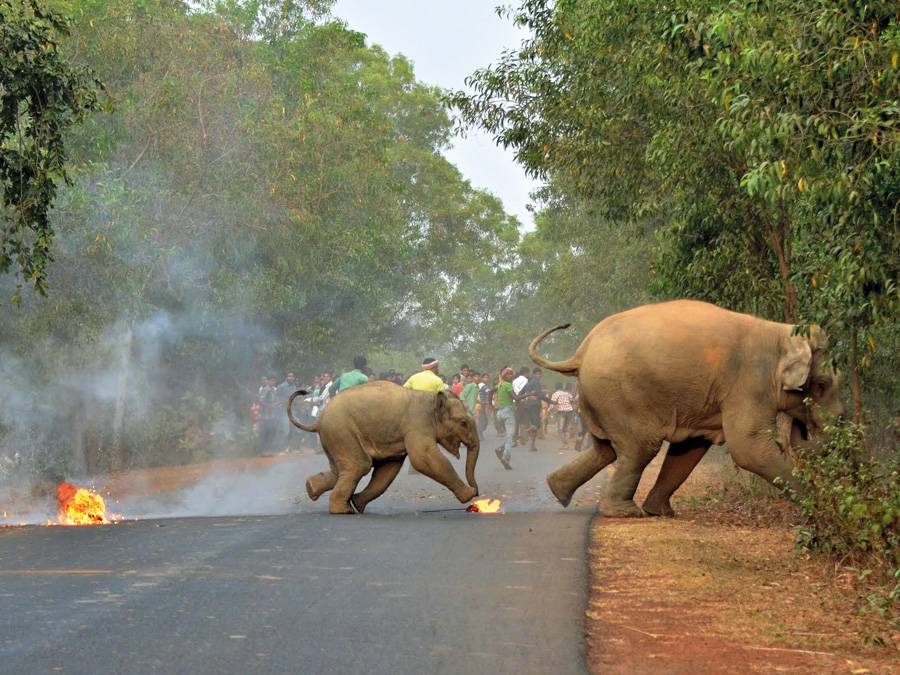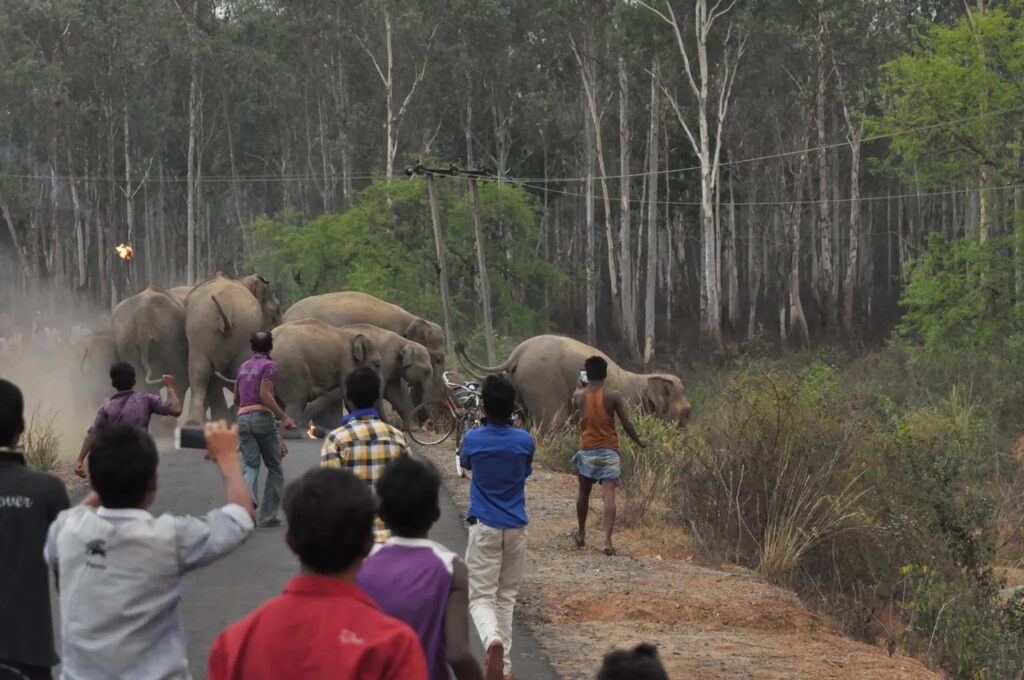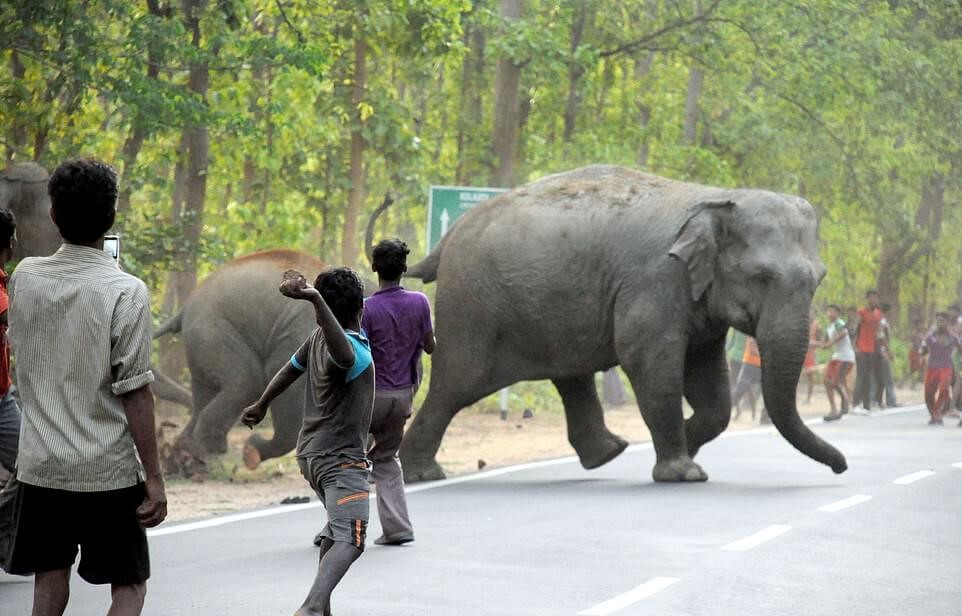In the verdant hills and dense jungles of Assam, a pressing issue is rapidly unfolding: the plight of elephants. As their natural habitats diminish due to rampant deforestation and the relentless destruction of trees, these majestic creatures find themselves increasingly displaced and deprived of essential resources.

The consequence? A surge in human-elephant conflicts as these displaced giants encroach upon human settlements in search of sustenance. Reports of elephants raiding villages and attacking homes have become alarmingly frequent, posing a grave threat to the safety and livelihoods of local residents.
Despite the escalating tensions and the evident social concern, governmental intervention remains conspicuously absent. The lack of proactive measures to safeguard the elephants’ habitats and ensure their basic survival is glaring, leaving the public to bear the brunt of the repercussions.
Calls for action reverberate through the affected communities, urging authorities to address this pressing issue with urgency and determination. It is imperative that the government takes concrete steps to mitigate the escalating conflict and prioritize the conservation of forests and trees—the lifelines of both humans and elephants alike.
Proposals for sustainable solutions to abound, with some advocating for a departure from conventional approaches such as electric fencing. Instead, suggestions are made to plant indigenous species like jujube and lemon trees. This alternative approach not only provides a natural barrier but also ensures the well-being of both humans and elephants, as the elephants used to get killed with the electric shocks and in this way it will be fostering a harmonious coexistence.

As the conflict escalates and the stakes rise, it is a piece of suggestion on behalf of the common public to the Assam government that as the elephants are deprived of the basic food requirement and have come down from the hills in order to find for it, it is needful at the moment to initiate a project by the government on plantation of more elephant apple(OU TENGA) trees and other plantations for them to sustain, the imperative for action grows ever more urgent. The time has come to heed the cries of its people and the silent pleas of its wildlife, taking decisive steps towards a future where humans and elephants can thrive together in mutual respect and harmony.

